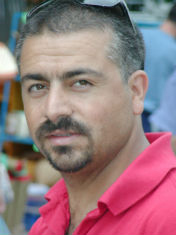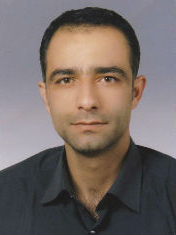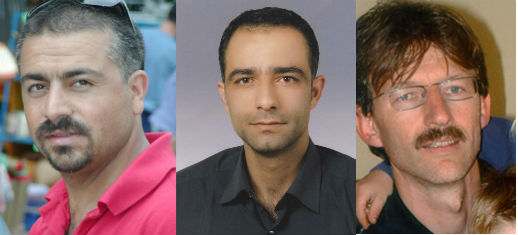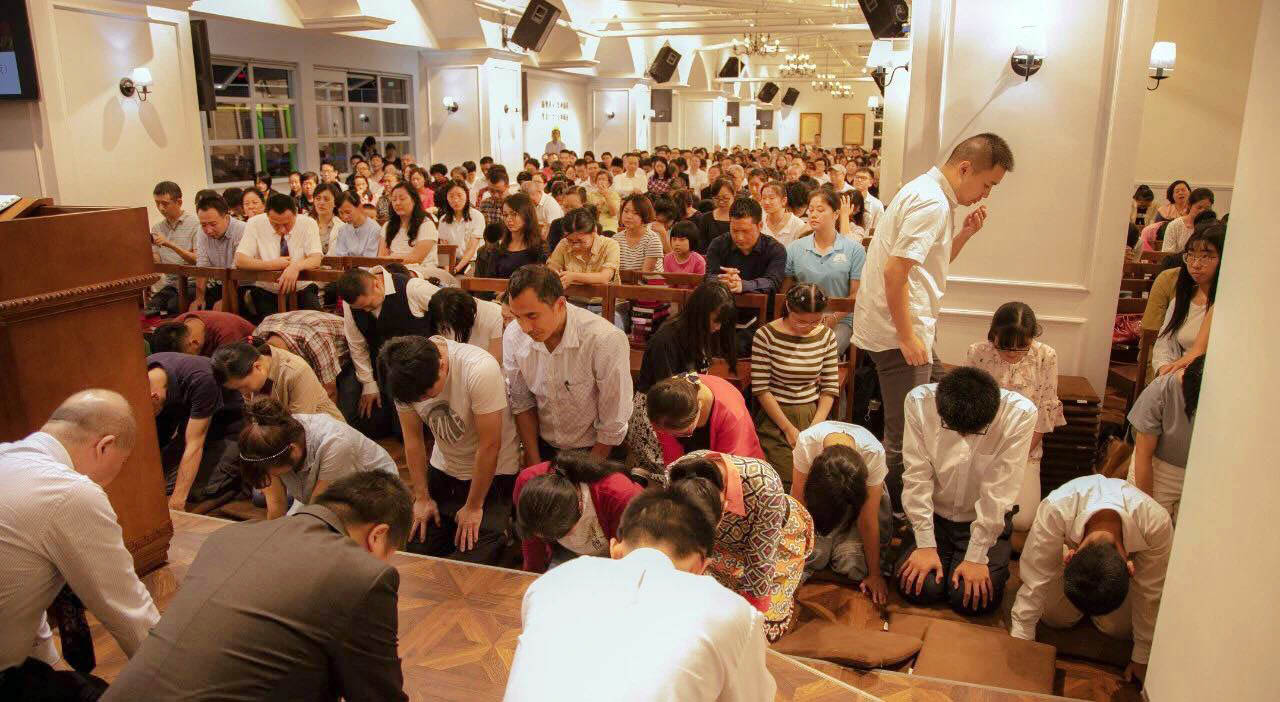
ISTANBUL, Turkey (BP) — Authorities arrested five Muslim-Turkish nationalists Thursday (Sept. 29) who had been convicted for the torture and murder of three Christians in 2007.
 Despite the verdict in Malatya, a city of more than 750,000 people in southeast Turkey, the men were not detained and were subject only to routine surveillance, pending appeals proceedings in the slayings of Ugur Yüksel, 32, and Necati Aydin, 36, both Turkish converts from Islam, and Tilmann Geske, 45, a German national.
Despite the verdict in Malatya, a city of more than 750,000 people in southeast Turkey, the men were not detained and were subject only to routine surveillance, pending appeals proceedings in the slayings of Ugur Yüksel, 32, and Necati Aydin, 36, both Turkish converts from Islam, and Tilmann Geske, 45, a German national.
The five Muslim-Turkish nationalists — Emre Gunaydin, Salih Gurler, Cuma Ozdemir, Abuzer Yildirim and Hamit Ceker — bound the three Christians at the Zirve Publishing House in Malatya, interrogated them about their activities, mutilated them and then slit their throats, according to court evidence and testimony.
 The advocacy group Middle East Concern confirmed the arrests today (Sept. 30). “Citing fears that the perpetrators may flee Turkey, the prosecutor, Burhanettin Olgun, requested their arrest, and on the evening of 29th September they were arrested,” according to an MEC press statement.
The advocacy group Middle East Concern confirmed the arrests today (Sept. 30). “Citing fears that the perpetrators may flee Turkey, the prosecutor, Burhanettin Olgun, requested their arrest, and on the evening of 29th September they were arrested,” according to an MEC press statement.
Gunaydin, Gurler, Ozdemir, Yildirim and Ceker were found guilty on three counts each of premeditated murder and sentenced to life in prison without the possibility of parole, the Malatya First Heavy Penal Court ruled Sept. 28.
 It marked the 115th hearing in the “Malayta massacre” proceedings against the five nationalists since the April 2007 murders.
It marked the 115th hearing in the “Malayta massacre” proceedings against the five nationalists since the April 2007 murders.
Gokhan Talas, a friend of the three slain Christians and a witness at the murder scene, said he was relieved at the decision to arrest the five men.
“We are better than yesterday — they are in jail now,” Talas said Sept. 29. “I believe the families, my family … feel more secure now.”
Police arrested the five men nine years ago almost immediately after the crime was reported.
According to several Christians close to Yüksel, Aydin and Geske, one or more of the assailants had cultivated relationships with the victims. Several Christians said Gunaydin had posed as being interested in the Christian faith or even posed as becoming a Christian.
When they were arrested, at least one of the suspects had a note claiming they committed the slaying for their country.
“They are trying to take our country away, take our religion away,” the note read in part, according to Morning Star News, a monitor of global persecution.
During the years of trial proceedings, as noted by World Watch Monitor, another news service focusing on persecution issues, the defendants and their lawyers insisted the attack was an attempt to stop the “harmful activities” of missionaries who were allegedly trying to destroy the nation of Turkey and the honor of Islam.
From the beginning of the trial, Gunaydin was portrayed as the leader of the attack with links to nationalist groups and to nationalist writer Varol Bulent Aral. According to testimony by Gunaydin, Aral urged the killing of the Christians and said he would have support of the state, meaning hard-core nationalists within the military.
The five suspects were released on bail in March 2014 under a new reform law that reduced the allowable period of pretrial detention from 10 years to five. The three suspects who were living in Malatya were fitted with electronic tracking devices, while the other two living in outlying towns were required to report weekly to their local police station.
The suspects’ release caused grave concern for Christians in Malatya. At one point, Talas’ wife suffered a nervous breakdown due to stress and was hospitalized, Talas told Morning Star News.
The number of hearings in the case and the fact that it took so long to prosecute also was a source of concern, most recently involving speculation that arrests of lawyers and judges in the wake of a coup attempt in July would further delay proceedings.
In 2008, the court held its first hearing in the case, but the proceedings were problematic and difficult from the start. The judges and prosecutors were changed more than once, causing significant delays, and subpoenaed witnesses simply refused to show up in court to testify without giving legitimate reasons and without being punished later for contempt of court.
In 2009, the murder case was linked to a suspected plot against the government called the “Ergenekon” file. As a result, a host of new witnesses were called into court, including a colonel in the gendarmerie and three army officers.
Anadolu Agency, the official state-sponsored Turkish news agency, said the court acquitted 16 suspects who had been arrested in the case. In the 47-page verdict Sept. 28, retired Col. Mehmet Ulger also was sentenced to 13 years and nine months in jail for “violation of confidentiality of communication and forgery of official documents” in conjunction with the alleged Ergenekon coup plot, while Maj. Haydar Yesil received a sentence of 14 years, 10 months and 22 days on the same charge.
Ihsan Ozbek, chairman of the Association of Protestant Churches in Turkey, noted in a statement after the Sept. 28 verdict against the five Muslim nationalists that “the judge explained the verdict, saying that the murders could not have taken place without connections to a [criminal] organisation, but it was important for the court to admit that it had not exposed this connection.”
Ozbek warned that “the legal process will continue as the case proceeds to the regional administrative court and then will go to the Supreme Court. This process can take years….”
Mine Yildirim of the Freedom of Belief Initiative Norwegian Helsinki Committee told Morning Star News she was disappointed that no “instigator” behind the murders has yet been identified and brought to justice.
“It’s interesting that … the judges say that they cannot prove the existence of an organization plotting the crimes, but they also think it is not reasonable that there cannot be an organization given the extent of the crime, so they call for further investigation,” she said. “For nine years this investigation could not be completed; how can one expect that such an investigation will ever be carried out effectively?”



















